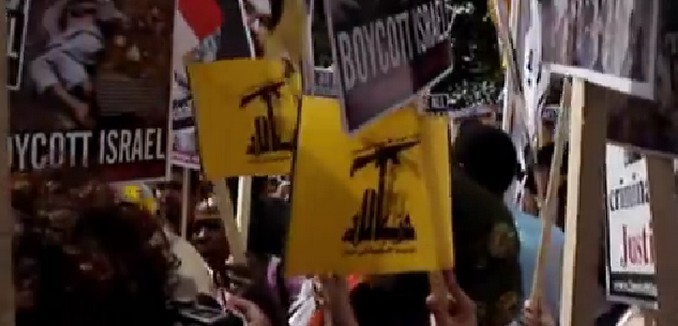The recent terror attacks in Paris and Copenhagen have brought the need to understand the phenomenon of rising anti-Semitism in Europe just seventy years after the Holocaust into sharper focus. Two reports published this month covering anti-Semitism in Britain during the past year note the contribution of media coverage of events in the Middle East to encouraging anti-Semitic activity.
The Report of the All-Party Parliamentary inquiry into Antisemitism (.pdf) in Britain during July and August 2014 notes that:
“…there was an overwhelming consensus amongst those that submitted evidence or gave personal testimony at the regional meetings we held, that the media, and in particular the BBC, had a role to play in whipping up anger through emotive content in the news and analysis that was broadcast.”
The Community Security Trust (CST) reveals a direct link between media reporting and antisemitic incidents in its annual report for 2014 (.pdf):
“For example, CST recorded 16 antisemitic incidents on 21 July, the day after intense fighting in the Gaza district of Shuja’iyya and also a day when media reported that a hospital in Gaza had been shelled. On 28 July, a day when media reported an explosion at the al-Shifa hospital in Gaza, CST recorded 22 antisemitic incidents in the UK. The following day, when a power station in Gaza was reported to have been hit, CST recorded 18 antisemitic incidents.”
The 22 incidents recorded on July 28th are particularly remarkable as the explosions at Shifa hospital and in the Shati area of Gaza, which killed ten people, including eight children, were actually caused by rockets fired by the Palestinian terrorist organization Hamas. However, the largest media provider in the United Kingdom (UK), the BBC, failed to adequately clarify that point to its audiences.
Members of the British public who followed the fifty-one day conflict on BBC television saw almost three times more filmed coverage from the Gaza Strip than from Israel. Within 24 hours of the conflict’s start, BBC audiences had already been informed that Israel was committing ‘war crimes’ in the Gaza Strip.
On July 31st 2014, a BBC World Service radio presenter made the following remark during an interview with an Israeli politician:
“But what the Americans and others across the world are seeing on their television screens are dead civilians and they’re seeing your artillery hitting schools and hospitals and the power supply and people see that as collective punishment against the Palestinians.”
Of course what people in America, Europe and elsewhere were “seeing on their television screens” throughout the months of July and August 2014 was dictated by what media organizations decided they should – or should not –see and their views of the conflict were influenced accordingly.
An upcoming program will explore the incidents cited above and similar ones, as well as the effect they have on promoting anti-Semitic activity.
On March 1st 2015, CAMERA, the Committee for Accuracy in Middle East Reporting in America, will be hosting a panel discussion in Jerusalem, entitled “Framing Israel, Framing Jews,” to discuss the effects of the UK’s media’s reporting on Israel – both in periods of conflict and at quieter times – on anti-Semitism in Europe.
Professor Robert S. Wistrich, Head of the Vidal Sassoon International Center for the Study of Antisemitism and Lucille Cohen, and former President of the Zionist Central Council and the Jewish Representative Council of Greater Manchester, will be among the panel members examining questions such as:
- Is UK media coverage of Israel influencing attitudes towards Jews in Europe and fueling extremism?
- Do UK media reports and commentaries about Israel evoke classic antisemitic tropes and motifs?
- What should major news outlets like the BBC and The Guardian do to avoid sensational, inaccurate and incendiary reports?
The events of the past few weeks clearly make critical examination of such questions all the more timely for those concerned about rising anti-Semitism and the future of Europe’s Jewish communities.
Hadar Sela is managing editor of BBC Watch, an affiliate of CAMERA.
[Photo: The Moonbat Media Channel / YouTube ]




